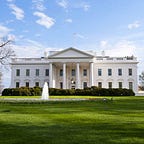Rhodes from the Road: Why We’re Traveling in Asia with the President
By Benjamin Rhodes, Deputy National Security Advisor
I’m Ben Rhodes, Deputy National Security Advisor for President Obama, checking in from Manila — the capital of the Philippines — on Day 4 of the President’s trip in the Asia Pacific.
Our trip began on Sunday in Antalya, Turkey at the G20 Summit — a forum in which world leaders discuss how to promote global economic growth. But the horrific terrorist attacks in Paris last Friday focused world leaders on our ongoing efforts to degrade and ultimately destroy ISIL.
Working with an international coalition, we are leveraging every element of American power to go after these terrorists. We have conducted thousands of air strikes in Iraq and Syria, targeting ISIL’s leadership, weapons, and the oil infrastructure they depend on — making it clear that they will have no safe-haven. We are supporting forces fighting against ISIL on the ground in both Iraq and Syria with training and equipment, and they have made gains in reclaiming territory that was once held by the terrorists. We are sharing intelligence to stop the flow of fighters into and out of Syria. And we are making progress in pursuing the political resolution that is necessary to resolve the civil war in Syria — working with many nations to set a clear timetable for a transition to a new government.
This will be a long-term campaign, with progress and tragic setbacks like the recent attacks. But we will remain focused and relentless in our efforts. You can watch what the President had to say about that here:
The President also addressed a point that is fundamental to our efforts to defeat ISIL.
We must reject the notion — that ISIL depends upon for its recruitment — that the United States and our allies are at war with Islam.
ISIL terrorists want to be seen as leaders of a religious movement; they are not, they are terrorists. They do not speak for Islam, or Muslims around the globe — they act on behalf of a hateful and twisted ideology. We only make our efforts against ISIL more difficult if we portray them as leaders of a religious movement, or if we act in ways that suggest this is a clash between the West and Islam.
Indeed, ISIL kills people of all religions and ethnic groups — and that’s certainly the case in Syria. As Americans, we cannot shut our doors to the refugees who have suffered the most at the hands of this terror. These are orphans who have seen their parents murdered. These are women who have been enslaved by ISIL. These are families who have been driven from their homes. It would be a betrayal of American values and our leadership in the world to further victimize these innocent civilians by denying them any safe-haven.
We already have the highest level of security checks for refugees admitted into the United States. Only after lengthy and extensive screening — which can take 18 to 24 months — are refugees from Syria admitted to then go through the trying experience of building a new life in a foreign land. But we can — and must — continue to welcome these refugees to our shores, and show the world who we are as Americans. That’s where you can help. Go to AidRefugees.gov or use the map below to find out if you can help an organization near you resettle refugees in your community. If you already are, share what you’re doing to #AidRefugees. And as voices are raised rejecting refugees or dividing people by religion, we should reject this message which is so inconsistent with our values, our history, and what this moment demands.
Today, we are in Manila. And right now, we’re seeing a shift in the world’s center of gravity. With nearly half of the Earth’s population, more than one-third of global GDP, and a number of the world’s largest and most capable militaries, the Asia Pacific region is becoming a greater political, economic, and military priority for the United States. The challenges that will define our children’s future — creating jobs, combating climate change, securing our country, supporting our democratic values — depend on our actions in the Asia Pacific.
So the President is in the Philippines this week to advance some of his top foreign policy priorities: moving forward with TPP, pursuing a global agreement to combat climate change, and ensuring that all nations play by the rules and resolve their differences peacefully.
So yesterday he started the day with a visit to the BPR Gregorio Del Pilar — the Philippine Navy’s flagship vessel, which was formerly a U.S. Coast Guard Cutter called the USCGC Hamilton.
For the last 7 decades, our military presence in the Pacific has been a foundation for regional stability and security — a stability that has helped strengthen our economy through increased trade and helped make the Asia Pacific one of the most successful regions in the world. Our continued support for allies like the Philippines, and our presence and partnership in the region, can help combat terrorism and piracy, respond to natural disasters, and uphold principles like freedom of navigation and the peaceful resolution of differences.
Next up: More on the President’s trade deal, what that will do for America’s leadership in the region, and a behind-the-scenes look at Embassy life.
Check back here for more from the group.
